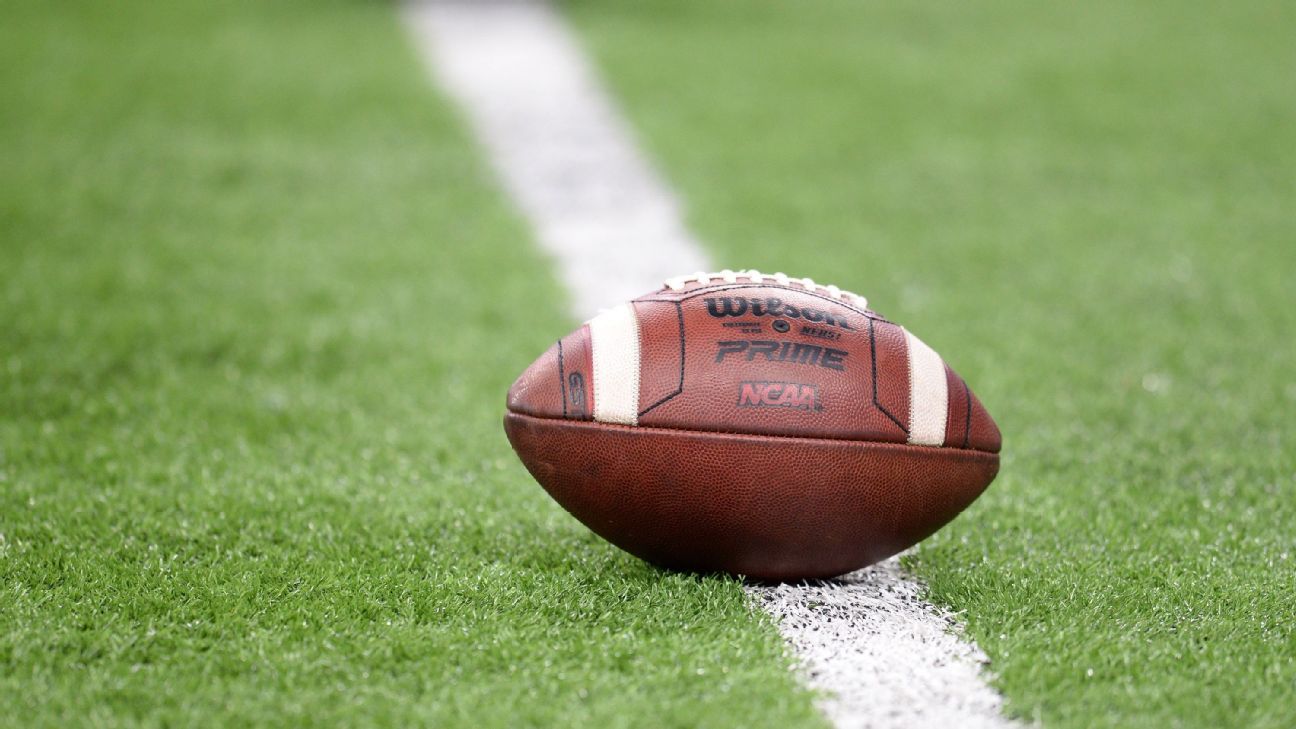A new players’ association launched Tuesday with a goal to organize and represent college football players as they push for more rights.
The College Football Players Association (CFBPA), led by former University of Minnesota professor Jason Stahl, has assembled an advisory group of attorneys, academics and athletes. They plan to start recruiting and signing up dues-paying members this week. Their announcement is the most recent push in an ongoing effort to organize college athletes, which advocates see as the next logical move during a summer of transformative change in collegiate sports.
“This is the next step,” Stahl told ESPN. “If players don’t get organized now, it’s never going to happen. There’s so much we can do right now.”
Stahl said the association will be open to all active college football players. They also plan to have membership groups for graduated players, parents of players and high school players who think they will eventually play at the college level. At a later date, they intend to form chapters at individual schools if they reach a critical mass of players who sign up.
Current players who join the group will pay $24 per year in membership dues. Stahl said most of the money needed to maintain an administrative staff for the new group will need to be raised via donations but collecting dues will provide the group with more legitimacy when negotiating with schools, conferences or the NCAA in the future.
Momentum to organize college athletes to fight for more rights ramped up last August following a string of player-led movements requesting a seat at the figurative table while conferences weighed whether to continue their fall sports seasons during the COVID-19 pandemic. Stahl said he spoke to athletes involved in those efforts and found that they fizzled because players didn’t have enough time and energy to sustain them while also playing their sport and attending classes.
At the start of July, another group called the United College Athlete Advocates (UCAA) started an online community for college athletes from any sport to discuss issues and work together on a wide variety of initiatives. And earlier this summer, Senators Chris Murphy and Bernie Sanders proposed federal legislation that would provide college athletes with the right to collectively bargain in the future.
Athletes and their advocates have attempted to unionize in the past. Northwestern quarterback Kain Colter led an effort to create a players’ union in 2015 that was dismissed by the National Labor Relations Board. While neither the UCAA or the CFBPA would be considered a union, their missions are similar. A trade association for college athletes would potentially give the players more leverage in negotiating for increased benefits in the future and could also provide a vehicle for group licensing deals that would help players collect money from items like jersey sales, trading cards or video games — all options that are now available to college athletes due to recent rule changes.
College athletes could benefit greatly from a trade association, says Marc Edelman, a sports law professor from Baruch College. Edelman has informally advised both the CFBPA and the UCAA in recent months. He said he thinks the groups both have great intentions, but would be better served by trying to work together in a unified effort.
“I am trying to bring them together to achieve something of mass and scale so college athletes do not have a wide range of different groups trying to do the same thing,” Edelman said. “No matter how well-meaning and well-intentioned those groups are, if there are a lot of groups running around trying to do the same thing, I’m not sure the desired results will ultimately be achievable.”
Members of the CFBPA group are hopeful that the time is now right for a players’ rights movement thanks to last summer’s grassroots push by football players coupled with recent changes in rules that allow college athletes to make money, as well as a Supreme Court ruling that stripped the NCAA of some of its authority to define what it means to be an amateur in college sports.
Along with Stahl, the advisory panel includes former college and NFL football players Gaelin Elmore and Pete Najarian; an anonymous current college football player; attorneys Richard Painter and James Humphries (a former Michigan football player); former University of Minnesota regent Michael Hsu and Ohio University professor B. David Ridpath, who studies college athletics administration and governance.
Unlike other player advocacy groups such as the National College Players Association, the CFBPA will not include athletes beyond football. Stahl said he wanted to focus on football because the sport presents the most health risks and provides for a more manageable group to push for specific changes.
“While this is a football effort, I believe it can be a template for all college athletes to be part of a voice in their education, protections and value,” Ridpath said. “The athletes must have a voice and power.”
Stahl left his job at the University of Minnesota in 2020 after the university eliminated the position he held and offered him a new role. He said he viewed the change as a demotion, which he believes was a result of what he was publishing about exploited college athletes at the school. The former professor said he previously researched how to build political organizations and gain power from scratch while earning his doctorate in U.S history. He said he became interested in a college sports labor movement after several discussions with students who were on the football team.
Players will ultimately decide what they want to ask for if future negotiations take place, but Stahl thinks any type of demands for revenue sharing deals are still years away. He said fortifying health, safety and welfare through increased medical benefits or stricter limits on practice time and practice activities will likely be a high priority.
